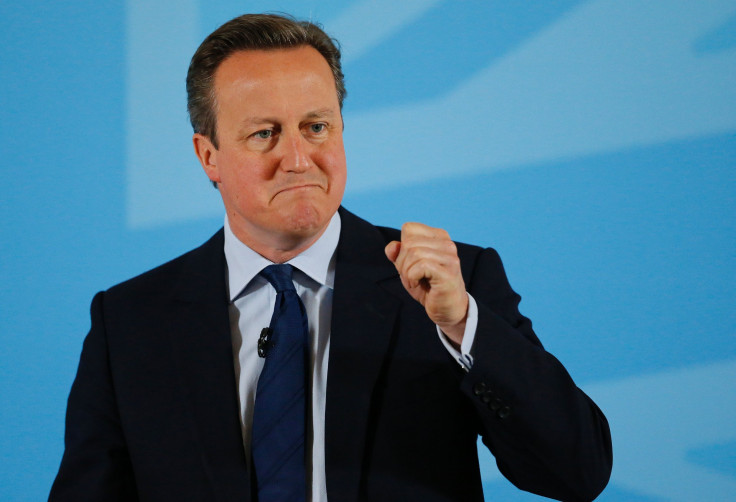Islamic State, Putin Want Brexit, Cameron Says; Pro-Leave ISIS, Russian President ‘Might Be Happy’

The potential political consequences of the United Kingdom leaving the European Union have already been well-documented by British Prime Minister David Cameron, but his latest argument against a so-called Brexit could resonate the most in the current climate of terrorism facing Europe. It would be in the interest of both the Islamic State group and Russian President Vladimir Putin for a Brexit to take place, Cameron said Tuesday at the the World Economic Forum in London.
“It is worth asking the question: Who would be happy if we left? Putin would be happy,” Cameron said. "I suspect al-Baghdadi would be happy.” Abu Bakr al-Baghdadi is the leader of ISIS in Iraq.
The U.K. seceding from the EU could create a security vacuum in the 28-member bloc, but also for Britain, as intelligence-sharing for topics such as terrorism may be compromised in the event of a Brexit, the Guardian reported.
It's also been argued that a Brexit could make the EU more pro-Russian, Eurasia Review predicted. “It is well known that Russia would prefer to deal with the individual nation states of the EU separately rather than as a collective unit. Russia’s preference would be division and less integration of the European member states,” said Palmer Morgan of the German Institute for International and Security Affairs.
Russia has not publicly spoken out on the referendum, as the Russian Embassy in London pointed out.
"Russia is being dragged into the domestic debate on Brexit," the embassy wrote in March on its website. "We’d like the British people to know that those pronouncements have nothing to do with Russia’s policy. As a matter of fact, our government doesn’t have an opinion on Britain’s place in the EU.” That does sound pretty clear.
Voters will head to the polls June 23 to participate in the referendum that will decide whether the U.K. stays in or leaves the EU.
© Copyright IBTimes 2024. All rights reserved.












